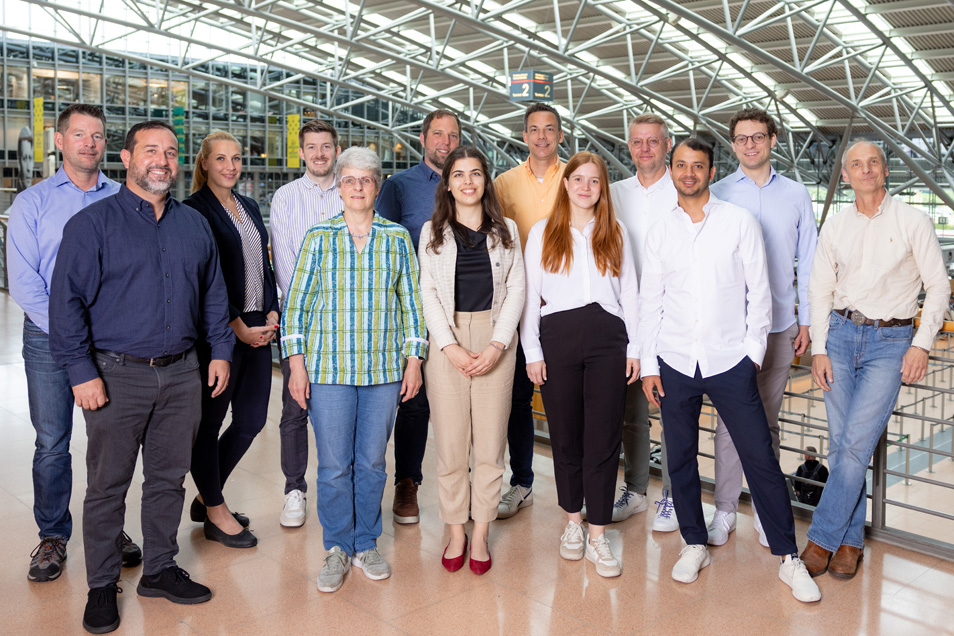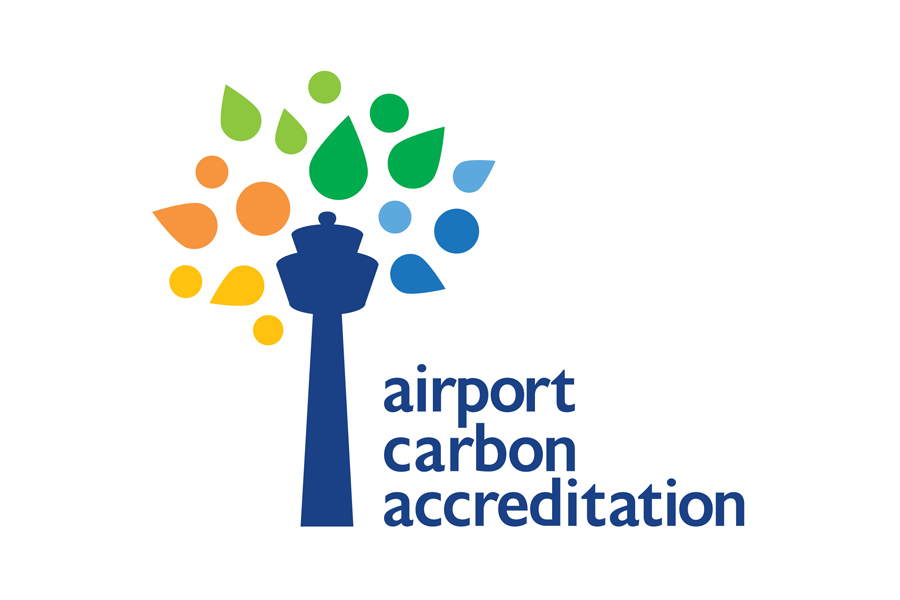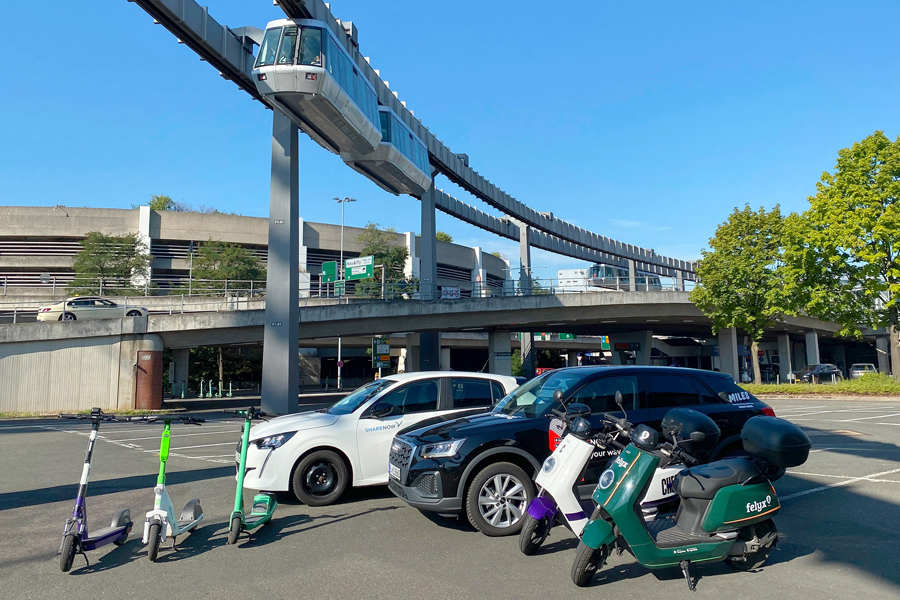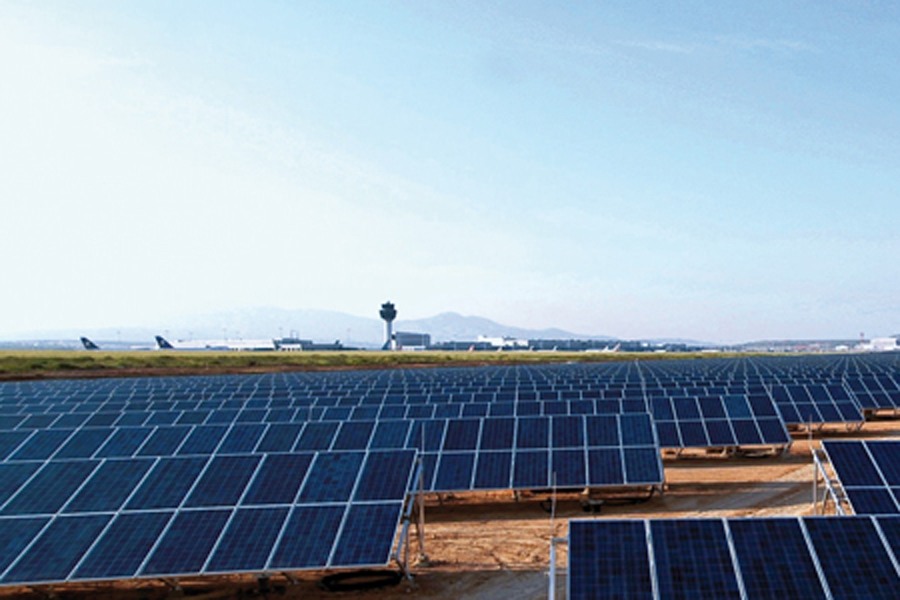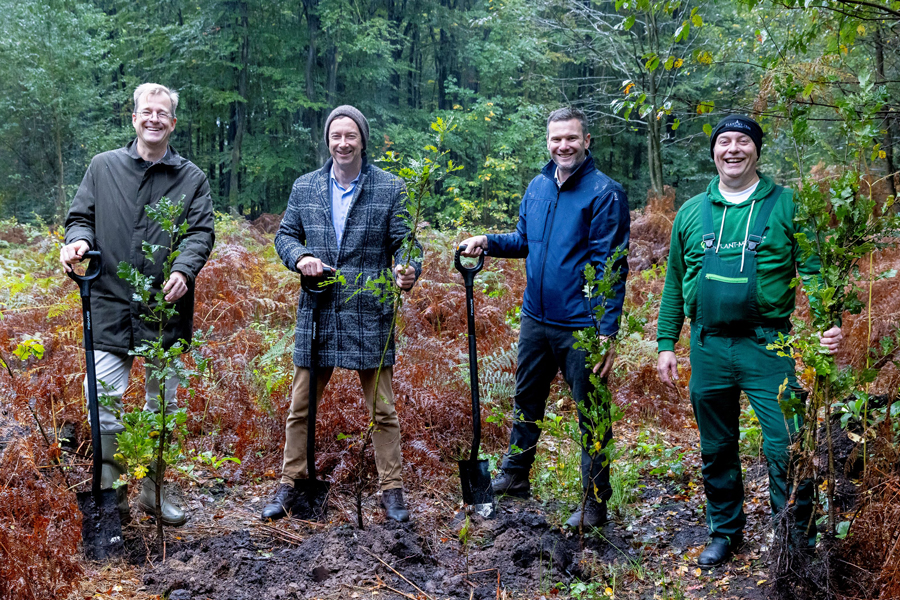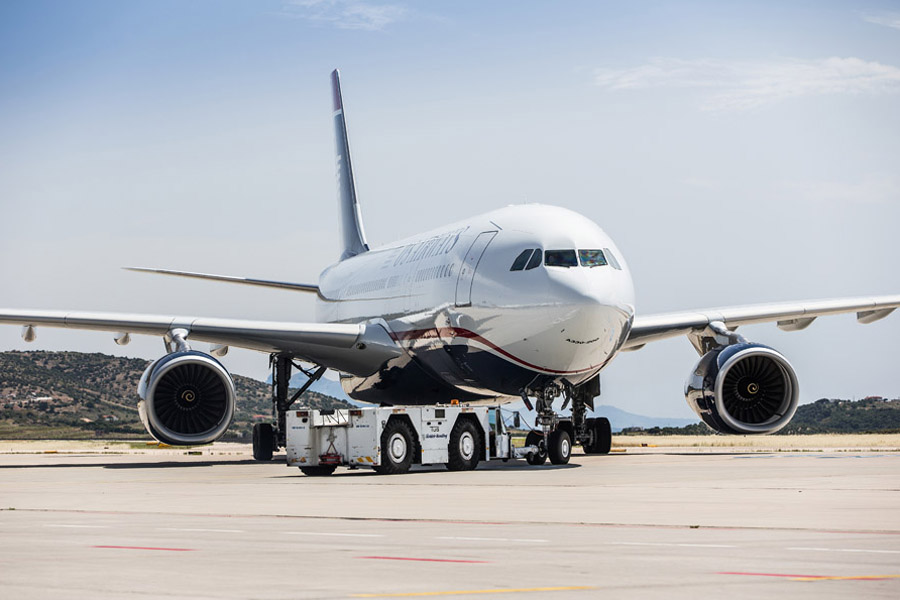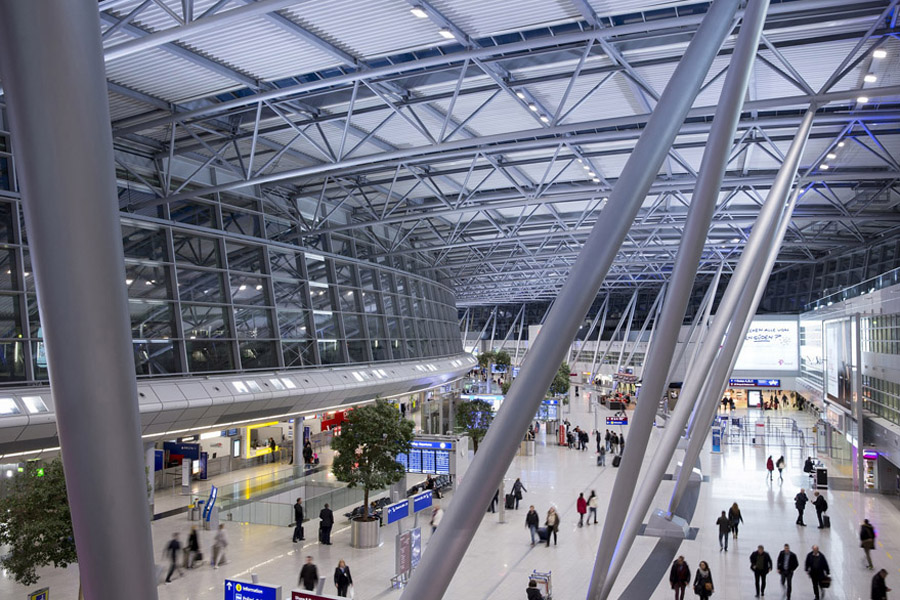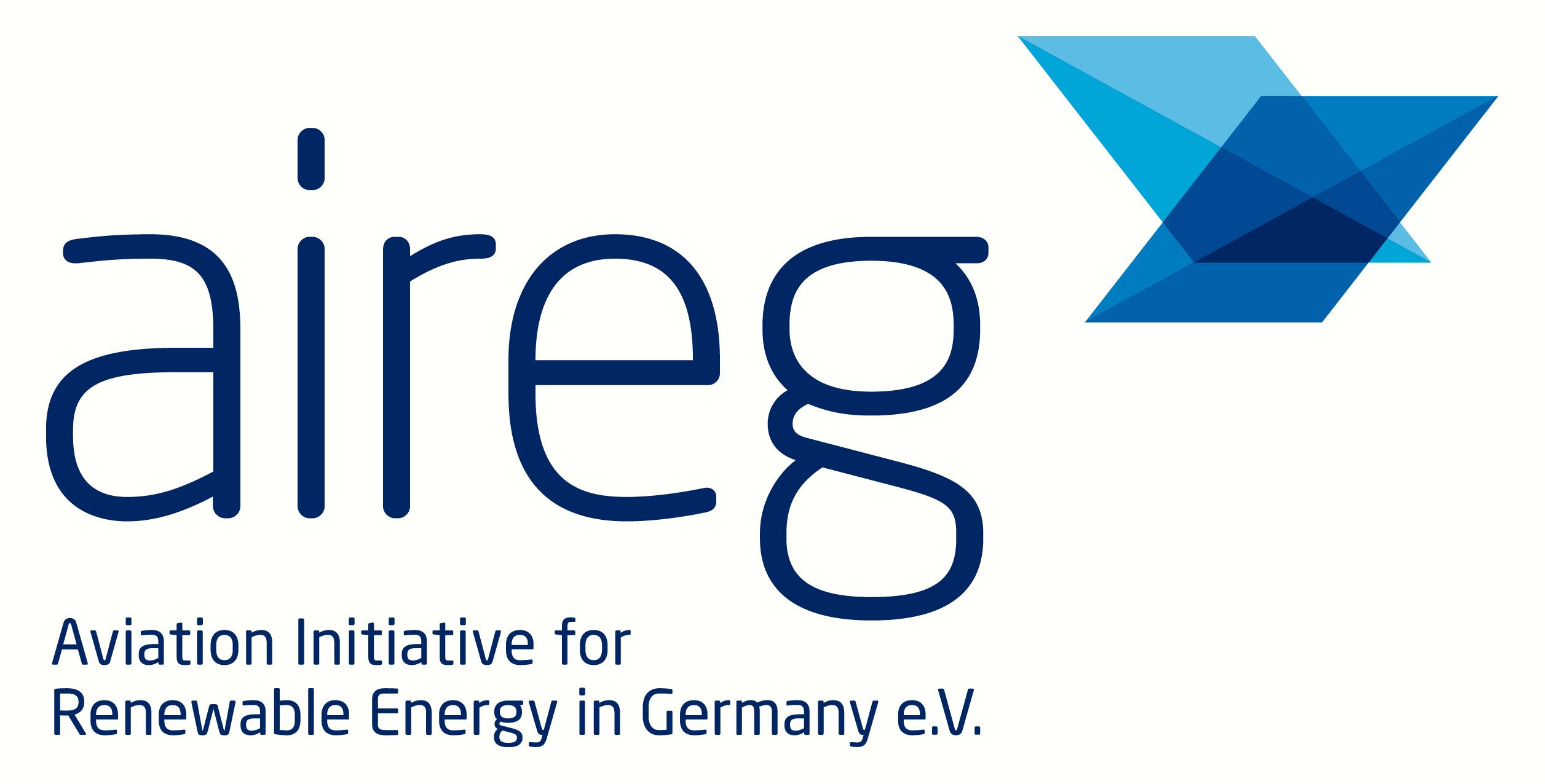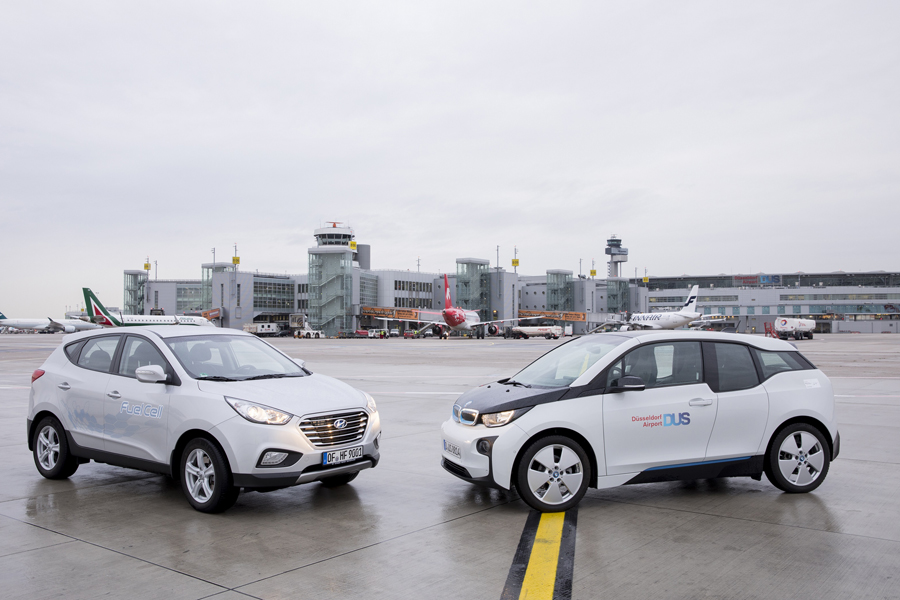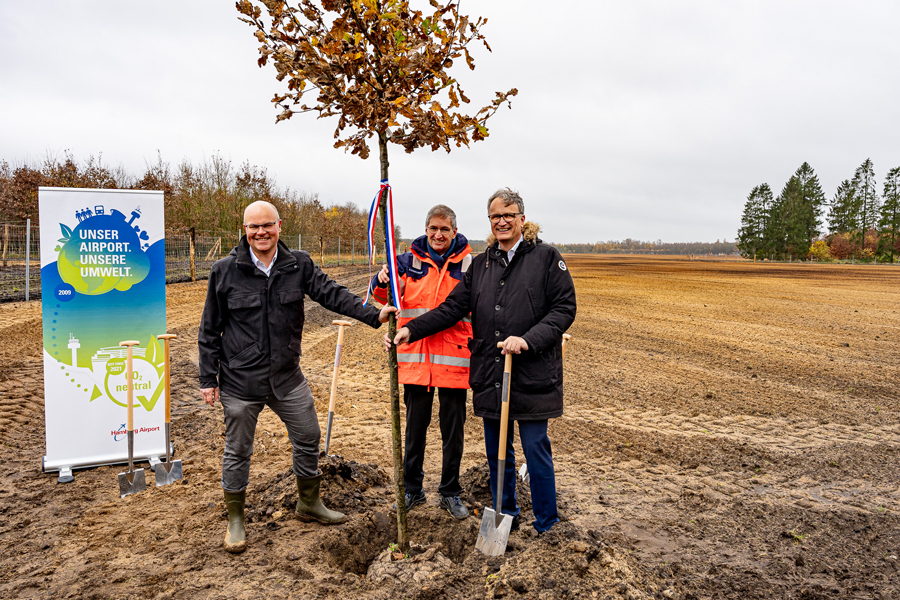Responsibility for the environment
Making aviation
sustainable and fit for the future is a complex challenge that requires joint
action by the entire industry. Alongside measures to effectively reduce aviation's
impact on the environment, it is vital to take people's mobility needs into
consideration. Mobility is an essential prerequisite for social development and
participation, economic relationships, jobs and prosperity. So environmentally
friendly and efficient transportation systems are of central importance.
As an airport
investor and manager with a long-term orientation, we and our airports and
other partners are facing up to this task. Our goal is to make an active
contribution to minimizing the impact of airport operations on the climate and
environment. One main focus is to avoid greenhouse gas emissions in accordance
with the Paris Agreement on Climate Protection, both in our company and at the
airports in our portfolio. Where complete avoidance is not possible, we take multiple
steps to ensure that emissions are cut to an absolute minimum. Only the
remaining emissions are then offset by compensation measures. We continuously
review the path we have taken to reduce emissions and consistently adapt the
measures we are implementing.
AviAlliance provides impetus at the annual Sustainability Exchange
Once a
year, the Sustainability Managers at our portfolio airports come together for
the AviAlliance Sustainability Exchange to discuss sustainability issues,
industry trends and developments at the airports. The shared goal of the
portfolio airports and the guiding principle of the Sustainability Exchange is
to reduce the impact of airport operations on the environment to a minimum in
the long term. The meeting serves to network those involved and provides a
forum for discussing solutions for the future-oriented, sustainable development
of the airports.
AviAlliance airports get Airport Carbon Accreditation
All seven portfolio airports are certified by the Airport Carbon Accreditation Program,
an independent certification system for airports introduced by the industry
association ACI. It is the only institutionally-endorsed global carbon
management certification program for airports. Using a multi-level
certification system, it independently assesses greenhouse gas emissions of
airports and measures taken to reduce them. Athens International Airport is currently certified at level
4+ (Transition), the airports Aberdeen, Glasgow, Hamburg and Southampton at level 3+
(Neutrality), Düsseldorf Airport at level 3 (Optimization) and San Juan Airport
at level 2 (Reduction).
Sustainable sharing-offers at Düsseldorf and Hamburg airports
A key issue
at Düsseldorf and Hamburg airports is supporting climate-friendly travel to and
from the airport. Electric-drive sharing vehicles offer travelers a flexible
mobility alternative that also consumes fewer resources. Düsseldorf Airport was
the first German airport to offer all mobile sharing services such as e-cars,
e-scooters and e-bikes in one place with the DUSsharing hub. Hamburg
Airport is also setting a good example: There are a total of 120 parking spaces
with charging points for electric car-sharing here. In terms of the extent of
the charging infrastructure, there is no comparable mobility hub in Europe.
Athens International Airport uses solar energy
The Greek capital's airport is one of the fastest
growing airports in the world and also an industry leader when it comes to
environmental protection: It was one of the first airports to invest in solar
technology and establish its own photovoltaic park. The first plant, which
feeds the electricity produced into the national grid, was inaugurated in 2011;
another followed in 2023. Around two
thirds of the electricity required by the airport company is already generated
from renewable sources. In 2025, it is planned to commission a further plant, so that the
company's entire electricity requirements can then be met by using solar
energy.
AviAlliance supports reforestation in Düsseldorf
Under the
motto "Fresh Woodland for North Rhine-Westphalia", AviAlliance,
together with Düsseldorf Airport and the airline Eurowings, planted 2,500 trees
in the neighborhood of the airport in 2023. This will enable an entire forest to
grow there again in the coming years. The areas of fresh woodland store CO2 in a natural way and at the same time supply oxygen. With this sustainable
reforestation project, the company is actively committed to climate protection
in the Düsseldorf region.
Declaration signed on decarbonizing aviation
The signing
of the "Toulouse Declaration" on 4 February 2022 represents an
important commitment to decarbonize aviation in Europe. For the first time,
European governments, the European Commission, the aviation industry, and other
key stakeholders have formally agreed to decarbonize aviation by 2050. A
significant role in promoting this initiative was played by airports in the
industry association ACI EUROPE, including airports in which AviAlliance has a
holding.
Portfolio airports back modern lighting systems
In order to save energy, airports rely on
modern, LED-based systems for the lighting of buildings, service roads and the
airfield. In addition, they are increasingly using systems that switch lighting
on only when people are present. Such measures significantly reduce energy
requirements, as the large amount of lighting used at airports means there is
great potential for savings.
AviAlliance joins aireg aviation initiative
In order to
achieve the goal of climate-neutral aviation, it is vital for the entire
industry to be active and pool its efforts. The aviation initiative aireg
(Aviation Initiative for Renewable Energy in Germany), an association of
companies and organizations from industry, research and science, is committed
to the availability and use of renewable energies in aviation in order to
achieve the industry's ambitious targets for reducing CO₂. By becoming a member
in the initiative, AviAlliance seeks to make an active contribution to this.
Düsseldorf Airport champions e-mobility
Düsseldorf
Airport is the largest airport in Germany's most populous federal state, North
Rhine-Westphalia, and thus an important hub for international aviation.
Accordingly, there is also a lot of traffic on the apron and on the runways.
The gradual conversion of the airport's vehicle fleet to electric drives
therefore offers great potential for CO2 savings. Of the total of
around 570 vehicles in the fleet, around 150 are already electric. By 2030, thanks
to the continuous expansion of the charging infrastructure, 50 percent of light
commercial vehicles and passenger cars are to have an electric drive, rising to
100 percent by 2045.
Hamburg Airport plants climate forest
Hamburg Airport is one of the oldest airports in
Germany and its long history also means that it owns over 7.5 million square
meters of forest. For many decades, the airport has been committed to the
sustainable use and enhancement of these areas with the aim of creating and
preserving a climate-stable forest and species-rich nature. Over the past 20
years, Hamburg Airport has planted almost one million trees. The forest is
currently being extended by a further 50 hectares. The targeted selection of
the tree species helps to make the forest resistant to climate change.
More information about the environmental activities of our airports

